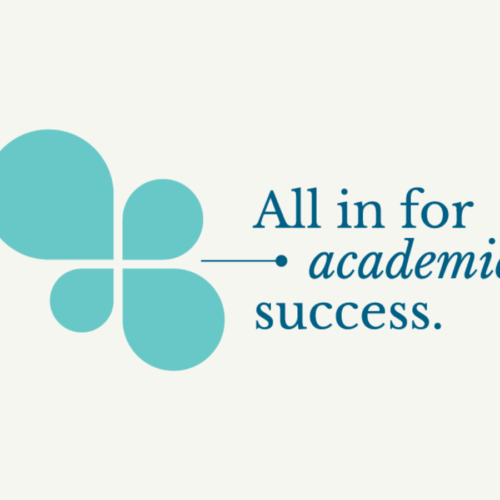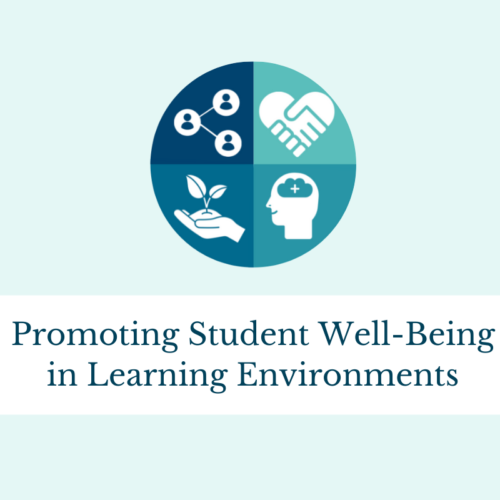French Professor Accentuates Interdisciplinary Interests in Education
“I hope my students take away a love of culture and a curiosity about other people’s perspectives that will inspire them to explore further, travel further, think circumspectly, and have the courage to put themselves in situations in which their informed perspectives can have an impact in whatever professional venue they choose,” said Tili Boon Cuillé, Associate Professor of French and Comparative Literature and Director of Undergraduate Studies in Comparative Arts at Washington University in St. Louis. Professor Cuillé is a core faculty member in the Interdisciplinary Project in the Humanities (IPH), and an affiliate faculty member in the departments of Performing Arts and Film and Media Studies. She also co-coordinates with Rebecca Messbarger (Professor of Italian at Washington University in St. Louis) the Eighteenth-Century Interdisciplinary Salon, a research group for scholars in the St. Louis area interested in the eighteenth century. The salon recently held its 20th anniversary celebration.
Professor Cuillé earned a B.A. in Comparative Literature from Princeton University. She then received her Ph.D. in Comparative Literature and Literary Theory from the University of Pennsylvania, where she studied under Dr. Jean-Marie Roulin in the Department of French, Dr. Gary Tomlinson in the Department of Musicology, and Dr. Lynn Hunt in the Department of History. Professor Cuillé joined the Department of Romance Languages and Literatures at Washington University in July 2000.
In an interview with The Teaching Center, Professor Cuillé emphasized the importance of experiential learning in art and literature. She also discussed how getting to know students on a personal level can positively impact one’s teaching.
What was your path toward becoming a French literature scholar?
It goes all the way back to high school in Ithaca, New York, where I had a wonderful, inspirational French teacher. I loved literature, language, and culture, and I wanted to bring those things together in comparative literature studies during college and graduate school.
When I came into the comparative literature program in college, French was my primary language. I learned German, subsequently, and I went on several study abroad programs during college in France and Germany. I was able to broaden my love of literature to more of a pan-European focus that I ultimately concentrated in French.
What inspired you to become an instructor in higher education?
I loved being a student. By becoming a professor, you’re continuing to be a student in a sense by reading, writing, researching, traveling, and discussing. Sharing my love of those pursuits in and beyond the classroom became another mode of remaining a student. It’s an exchange of ideas, be it with faculty, teachers in training, or students who may be interested in similar ideas and perspectives.
Your titles at the university include Associate Professor of French and Comparative Literature, and Affiliate Faculty of Performing Arts and Film and Media Studies. How do your interdisciplinary interests inform your teaching?
They’re the essence of it. For me, interdisciplinary studies and ultimately, comparative arts were ways of integrating my own interests as a student. I played piano, flute, and piccolo, so I participated in various performing groups. When I started in college, I was really interested in bringing together my interests in literature and the arts and comparative literature allowed me to do that. I wasn’t only learning about literature; I was taking courses on the music, art, and history of various countries and eras, which allowed me to think across national borders and disciplinary lines.
Putting students in a position that encourages them to broaden their perspectives beyond the classroom setting has become a focus of my teaching. Just as a foreign language student might go abroad for an immersion experience, I like to take my students to various artistic venues where they can view the works we’ve been discussing. It allows them to start thinking like an artist, a critic, and a consumer. It helps them experience some of the theories and narratives we’ve studied in class, which they might otherwise view at arm’s length.
How did you becoming involved with the Eighteenth-Century Interdisciplinary Salon? What is the value of having groups like this?
The eighteenth-century salons were venues in which philosophers, politicians, and members of the intelligentsia would get together and talk, exchange writings, and perform for one another. It was a venue for vetting and stimulating some of the nascent ideas of the era.
Our group perpetuates that model with more recent trends in scholarship. It is a faculty works-in-progress group that also includes graduate students. Students and professors exchange work, comment on one another’s ideas, and inform one another across disciplinary boundaries. We respond constructively to each other’s work before it reaches the stage of publication. We also invite a rich variety of outside speakers from across the nation who share cutting-edge research and new approaches and methodologies.
How did you get the idea for your opera studies courses for the IPH and Summer Humanities Institute?
When I was pursuing studies in music and literature as an undergraduate and graduate student, I focused on opera studies as a sub field. My first book was about the opera quarrels in 18th century Paris, and the ideological stakes and literary repercussions of those quarrels.
In the classroom, I’ve had the opportunity on three different occasions to include opera as a focal point of the class. The first occasion was as the junior seminar in the IPH program, where we studied opera from two different disciplinary perspectives: music and literature. Dean McCleod allowed me to fly in my colleague Charles Dill (Professor of Musicology, University of Wisconsin-Madison) to get the conversation started at the beginning of the semester. We took the students to a performance of Gluck’s “Orfeo” in Chicago as part of that experiential learning.
Most recently, I taught a first-year comparative arts seminar on transmediation. The notion behind this course, for which I received a Classroom Innovation Grant, was to structure the class around that season’s exhibits and performances in St. Louis and as far north as Chicago. For the first half of the course, we used opera as the genre under which a number of different art forms fell, with the highlight being the trip to see Gounod’s “Faust” at the Lyric Opera of Chicago. The second part of the course centered around musical theatre, the American descendant of European opera. The highlight was a trip to the Fox Theatre to see “The Color Purple.” The advantage of revisiting a story told through different art forms in different ways was that once students experienced one version of the story, they had a critical vantage from which to assess the effect of added or lost meaning across successive versions.
What are some of the challenges of teaching in a foreign language, and how do you address them?
One of the challenges of teaching in a foreign language is that some degree of fluency is required in order to be able to appreciate the subject of study. Students come in with a large range of backgrounds, abilities, strengths, interests, that we need to bridge to render them conversant with one another in the classroom. That challenge remains, whether they’re coming in at the introductory level, or daring to speak in a class that might combine advanced undergraduates and beginning graduate students.
What my colleagues and I try to do at every level of French language, culture, and literature study is to enable the students to think and write critically. We want students to become aware of all the levels on which form and meaning can be interpreted. Historically, French texts–and you could understand ‘texts’ as one of several forms of expression–were a mode of social and cultural construction and resistance. So, making students aware of how those texts can be interpreted, critiqued, and crafted can prepare them for a number of fields including diplomacy, legal studies, international studies, and business relations. They can take that knowledge, which informs their own culture as well, and apply it to their future professions.
Who are some of the teachers who have most inspired you, and why?
My high school French teacher, who had us recite poetry, sing arias, watch a filmed or a live Broadway performance of a text we had read, and gave us an “A” if we cried at the end of “Cyrano de Bergerac.” His means of putting us in a situation in which we were both receiving and producing the language, responding emotionally as well as intellectually to what we read, was inspiring.
When I was in college, I had professors in musical performance, opera studies, literary studies, and cultural history who built upon this notion of telling stories through different modes of expression. That really informed the multiplicity of perspectives that I try to maintain in my research and teaching.
What do you hope students take away from your classes?
I hope they take away a love of culture and a curiosity about other people’s perspectives that will inspire them to explore further, travel further, think circumspectly, and have the courage to put themselves in situations in which their informed perspectives can have an impact in whatever professional venue they choose.
What advice do you have for aspiring instructors?
We became a faculty family on the South 40 after I had already been at WashU a few years. I started to become most at ease in the classroom once I started to get to know students outside the classroom. A lot of subjects that informed my interest in teaching were subjects I had explored outside the classroom myself, and so getting to know the students’ talents, interests, and passions helps me teach and engage with them as individuals.
I think the students here have some well-developed talents and interests, or perhaps they’re in that exploratory mode, where they have a sense of their interests but don’t yet know how to pursue them. Getting to know them enables you to reach them more effectively in the classroom and mentor them thereafter.




